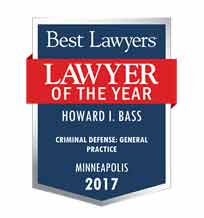Supreme Court Upholds Strip Searches After Arrests for Minor Offenses
The Supreme Court of the United States issued a landmark decision on April 2, 2012, ruling that law enforcement officers may strip-search individuals arrested for any criminal offense, no matter how small, regardless of whether they have reason to believe that the individual is concealing a weapon or other contraband.
The Fourth Amendment to the U.S. Constitution prohibits unreasonable search and seizure. Previously, strip searches were generally considered unreasonable unless an arresting officer reasonably believed that an arrested suspect was carrying contraband beneath his or her clothes. The recent ruling does not mean that strip searches are required for every arrest, but rather that they are not prohibited by the Fourth Amendment.
The Supreme Court decision stemmed from a case involving the arrest of a man named Albert Florence who was arrested on a warrant stemming from an unpaid fine – which, in fact, he had already paid. Florence was arrested after his wife’s car, in which he was a passenger, was pulled over for speeding. After being arrested, Florence was taken to jail, where he was strip-searched twice and held for a week.
The Florence case was not the first time that people have gone to court over strip searches for minor offenses. According to a New York Times article on the case, the lower courts have ruled on cases involving strip searches after such minor offenses as:
- Dog leash law violations
- Driving without a license
- Failure to pay child support
- Driving with a noisy muffler
- Failure to use a turn signal
Justice Stephen Breyer, one of four dissenting judges in the case, wrote that strip searches are a “serious affront to human dignity and to individual privacy” and should not be performed without good reason. Other critics of the ruling have expressed concerns that it will permit arresting officers to conduct strip searches for improper reasons, for instance to humiliate or degrade the arrested individual.
However, Justice Anthony Kennedy, writing on behalf of the five judges who favored the ruling, argued that the court should not second-guess the judgment of law enforcement officials who believe it necessary to search for weapons, drugs and other contraband before placing an arrested individual with the general population in a detention facility.
People who believe their rights have been violated by law enforcement officers during an arrest or detention should contact a lawyer experienced in handling civil liberties cases.


